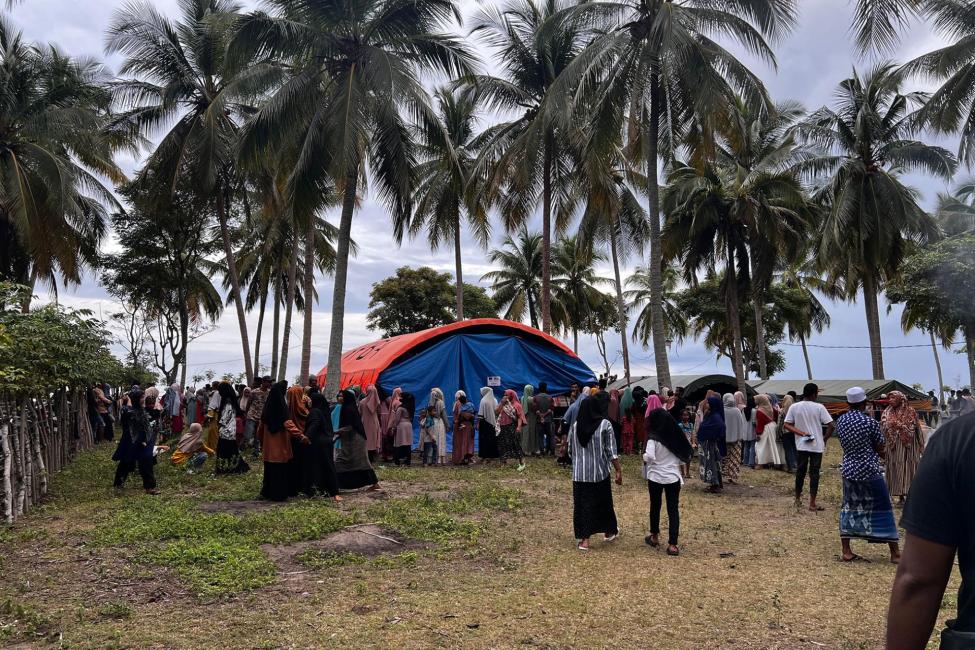-
Who we are
WHO WE AREThe International Organization for Migration (IOM) is part of the United Nations System as the leading inter-governmental organization promoting since 1951 humane and orderly migration for the benefit of all, with 175 member states and a presence in over 100 countries. IOM joined the United Nations system in September 2016.
About
About
IOM Global
IOM Global
-
Our Work
Our WorkAs the leading inter-governmental organization promoting humane and orderly migration, IOM plays a key role to support the achievement of the 2030 Agenda through different areas of intervention that connect both humanitarian assistance and sustainable development.
Cross-cutting (Global)
Cross-cutting (Global)
- Data and Resources
- Take Action
- 2030 Agenda
Leveraging Human Mobility to Achieve SDGs Focus of International Dialogue on Migration
New York - The International Dialogue on Migration (IDM) concluded Friday after two days of solution-focused and action-orientated discussions at the UN Headquarters in New York around a number of acceleration points where human mobility can be leveraged to attain the Sustainable Development Goals (SDGs).
The IDM is the International Organization for Migration’s (IOM) principal forum for migration policy dialogue, bringing together leaders from IOM’s Member States, international organizations, civil society, youth leaders and other stakeholders.
This year’s SDG Summit will mark the mid-way point in implementing the 2030 Agenda.
“Mobile populations - one in eight people in the world - are part of the solution, and the 2030 Agenda and the SDGs will not be achieved without due consideration of human mobility,” said IOM Director General António Vitorino. “We have heard throughout the two days that time will not wait for us. The moment is now; we have a collective responsibility and a clear path ahead with the SDG Summit in September.”
Video: DG Vitorino’s Closing Remarks
Five panel discussions focused on empowering migrants and displaced persons to actively participate in addressing societal challenges including poverty, inequality and climate change, and to identify tangible actions to leverage human mobility for sustainable development.
Some of the IDM’s recommendations to accelerate the achievement of the SDGs include:
- Improving data quality and analysis to further support evidence-based policy making.
- Recognizing the central role of diaspora and the power of remittances towards the contribution of sustainable development.
- Addressing inequalities and vulnerabilities through Universal Health Coverage.
- Leveraging migrants and displaced persons for climate action including preparedness and anticipation to address loss and damage.
- Building resilient and peaceful cities and communities where mobile and host communities are empowered through inclusivity.
Founded in 2001 and rooted in IOM’s Constitution and Strategy, the IDM is open to all 175 IOM Member States and eight Observer States, as well as international and non-governmental organizations, migrants, and partners from media, academia and the private sector. The IDM provides a space to analyze current and emerging issues in migration governance and to exchange experiences, policy approaches and effective practices.
A second IDM will be held in Geneva later in the year.
For more information, please contact:
Juliana Quintero, IOM Geneva ; email: juquintero@iom.int or; Tel: +41 79 551 12 67 and Rahma Soliman, IOM Office to the UN in New York, email: rsoliman@iom.int or; Tel: +1 917 515 7454

